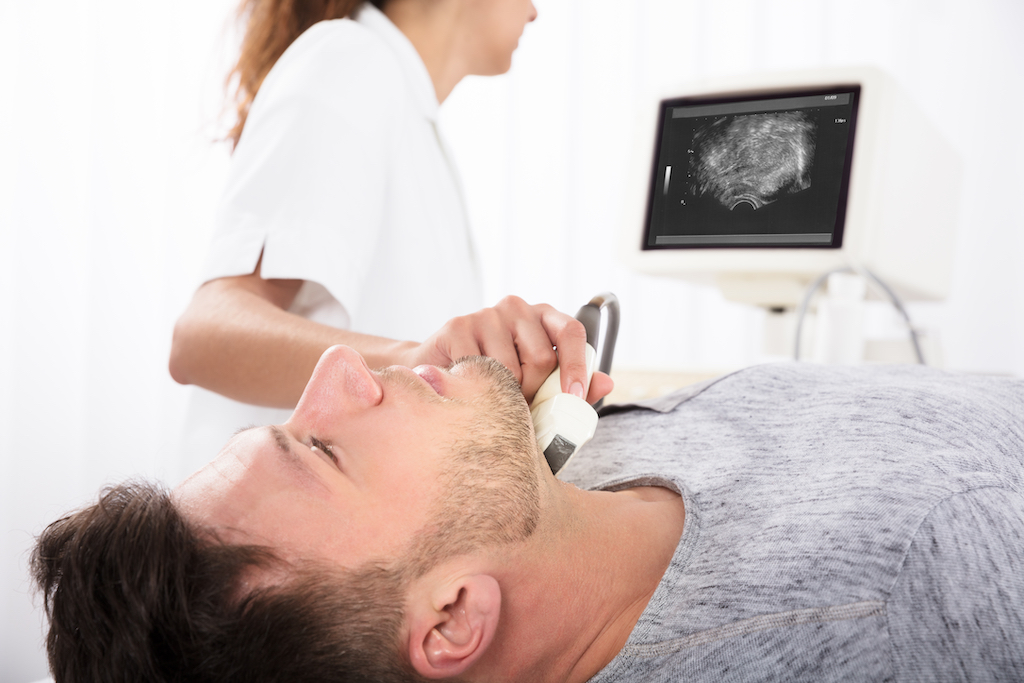 Photo Credit: Shutterstock Have you ever heard of Graves’ disease, an immune system disorder that can have your thyroid hormones going on a production spree (hyperthyroidism)? Graves’ Disease is the most common cause of hyperthyroidism, so it’s important to understand. Now, before you succumb to its gloomy implications, Haute MD expert Dr. Deborah Houk is here to uncover the intricacies of the disorder while offering valuable insights to help you navigate its complexities.
Photo Credit: Shutterstock Have you ever heard of Graves’ disease, an immune system disorder that can have your thyroid hormones going on a production spree (hyperthyroidism)? Graves’ Disease is the most common cause of hyperthyroidism, so it’s important to understand. Now, before you succumb to its gloomy implications, Haute MD expert Dr. Deborah Houk is here to uncover the intricacies of the disorder while offering valuable insights to help you navigate its complexities.
What is the cause of Graves’ disease?
The root cause of Graves’ disease lies in a malfunction of the body’s immune system. Normally, your immune system produces antibodies to fight off bacteria and viruses (foreign invaders), but in Graves’ disease, the immune system produces antibodies that in addition to targeting bacteria, viruses, and foreign subjects, the antibodies also unintentionally target your own thyroid gland. When the antibodies lock onto the thyroid, it sends a signal for the thyroid to produce excessive amounts of thyroid hormone, which has varying effects on the body.
Due to this, people with Graves’ disease experience hyperthyroidism, but why? Typically, your thyroid activity is regulated by your pituitary gland. In the case of Graves’ disease, the antibody associated with the disorder activates the thyroid itself, without the need for the usual pituitary hormone that regulates it. As a result, the normal regulation of the thyroid is overrun by the Graves’ disease antibodies, causing hyperthyroidism.
Who is affected by Graves’ disease the most?
Graves’ disease has the potential to affect anyone, but it is more commonly observed in women (7 to 8 times more common in women than men) and those older than 30. If you have a family history of Graves’ disease, Hashimoto Thyroiditis, or other autoimmune disorders like type 1 diabetes, vitiligo, or rheumatoid arthritis, you’re at higher risk to develop it. In addition, if you use nicotine products, you’re at a greater risk to develop the disease.
Common Signs and Symptoms
Graves’ disease is evident through a variety of signs and symptoms. These symptoms affect different aspects of your physical and emotional well-being, including but not limited to:
- Heightened anxiety, irritability, and trouble sleeping (insomnia) can affect your overall mood and daily interactions.
- Fine tremor of the hands or fingers, which can be more pronounced during times of high stress or physical activity.
- Heat sensitivity, increased perspiration, warm or moist skin.
- Unintentional weight loss despite increased hunger from the high metabolic rate caused by hyperthyroidism.
- Enlargement of the thyroid gland, called goiter, can be noticed in the neck area.
- Enlargement of the eyes, pain, double vision, and light sensitivity which occurs when your immune system attacks the muscles and other tissues around your eyes.
- Changes in menstrual cycles.
- Erectile dysfunction or reduced sexual function.
- Frequent bowel movements and diarrhea.
- Rapid or irregular heartbeat, causing palpitations or a pounding heart sensation.
 Photo Credit: Shutterstock
Photo Credit: Shutterstock
Diagnosing Graves’ Disease
When it comes to diagnosing Graves’ disease there are a few tests that can be run to further aid in the diagnosis. First and foremost, your doctor will do a thorough interview and a comprehensive physical exam to evaluate your signs and symptoms. You should be ready to discuss your personal medical history as well as your family’s medical background to gain a better understanding of the possible factors that could increase your likelihood of having this disorder.
Your doctor may also recommend several tests including:
- Blood tests with thyroid function tests are an essential part of diagnosing Graves’ disease. A blood test can measure the levels of thyroid hormones and the presence of antibodies.
- Radioactive iodine uptake, involving the administration of a small amount of radioactive iodine, to the thyroid gland. By measuring the amount of radioactive iodine taken up by your thyroid gland, we can assess its functioning.
- Ultrasound scan of your thyroid gland to check the size and structure of the gland. Your physician will look for an enlarged thyroid, nodules, or other abnormalities that might be present.
- Advanced testing with further radiologic testing like a computed tomography or magnetic resonance imaging, fine needle aspiration biopsy, or flow-volume loop tests may be recommended depending on the patient and their presentation.
Treatment Options
Hyperthyroidism from Graves’ disease is usually treated with medicines, radioiodine therapy, and/or thyroid surgery as discussed below.
- Radioactive iodine therapy is taken by mouth. Your thyroid relies on iodine to produce hormones, when taking radioiodine, the radiation destroys the overactive thyroid over time causing your thyroid gland to shrink.
- Anti-thyroid medication to block the thyroid’s use of iodine to produce a surplus of hormones.
- Beta blockers to block the effect of hormones on your body.
- Surgery to remove part or all of your thyroid.
- At-home, focus on your mental and physical well-being by eating well, exercising, and easing stress triggers.
Your doctor can help you identify the best options based on your age, health, symptoms, and other factors.
If you believe you are experiencing symptoms of Graves’ disease, don’t allow yourself to feel overwhelmed! Dr. Deborah Houk recommends you book an appointment with an internal medicine doctor and an endocrinologist to accurately diagnose and appropriately treat your condition. Graves’ disease does not need to be a grave disease, and with the proper care it won’t be.
For more information, visit Dr. Brian A. Levine's social media:

























